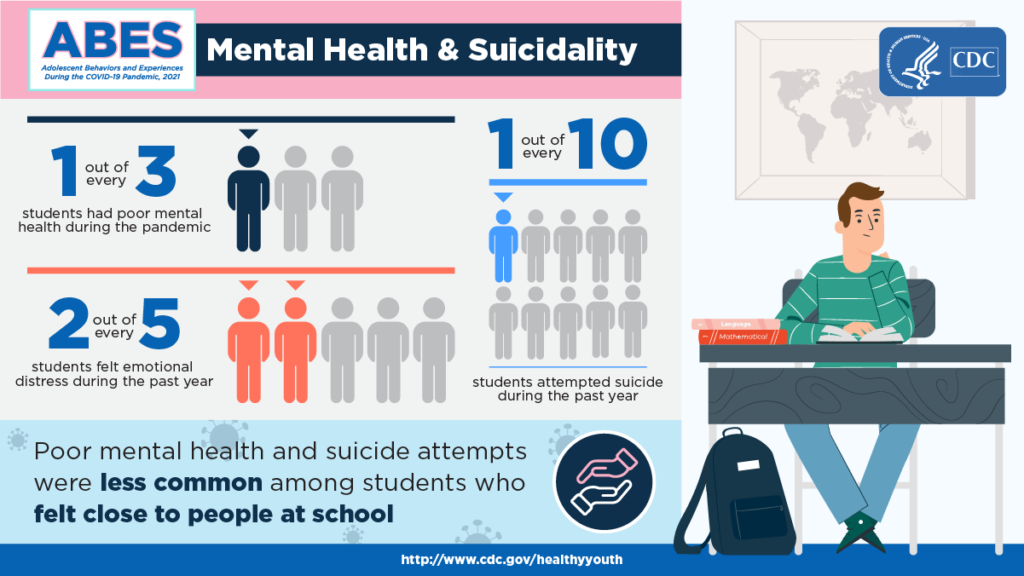What Is Cluster B Personality Disorder?
Cluster B personality disorders are a group of mental health conditions characterized by pervasive patterns of behavior and emotions that deviate from societal norms and expectations. This cluster encompasses four distinct personality disorders: borderline personality disorder (BPD), narcissistic personality disorder (NPD), histrionic personality disorder (HPD), and antisocial personality disorder (ASPD).
Individuals with Cluster B personality disorders often struggle to regulate emotions, maintain stable relationships, and exhibit consistent self-identity. These disorders typically emerge during adolescence or early adulthood and can significantly impact various aspects of a person’s life, including their relationships, work, and overall well-being.
While each disorder within Cluster B has unique features, they share certain commonalities, such as difficulties with impulse control, distorted self-image, and challenges in empathy and understanding others’ perspectives. It is essential to note that not all individuals with these disorders will exhibit the same symptoms or severity levels.
Therefore, accurate diagnosis and personalized treatment plans are crucial for managing and improving the quality of life for those affected by Cluster B personality disorders.
Cluster A B C Personality Disorders
Cluster A, B, and C are three distinct groups of personality disorders identified in the Diagnostic and Statistical Manual of Mental Disorders (DSM-5). These clusters help categorize and understand maladaptive behaviors, thoughts, and emotional patterns.
Cluster A Personality Disorders
Cluster A personality disorders are characterized by odd or eccentric behavior, thinking, and social interactions. The three disorders within this cluster are:
- Paranoid Personality Disorder (PPD): Individuals with PPD exhibit a pervasive distrust and suspiciousness of others, often perceiving benign actions as malevolent. They may have difficulty forming close relationships and be overly vigilant for signs of betrayal or harm.

Skip To:
Learn More:
- Borderline Personality Disorder Treatment & Diagnosis
- BPD Splitting Meaning, Duration & Causes
- Obsessive Compulsive Personality Disorder & OCD
- CBT Therapy for Mental Health Disorders, Process, Efficacy, Techniques, Types & CBT for Co-Occurring Disorders
- Co-occurring disorders, Diagnosis, Risk Factors, Mental Health, Substance Abuse & Dual Diagnosis Rehab Washington
- We Level Up WA Mental Health Center
- Schizoid Personality Disorder (SPD): People with SPD typically have little interest or desire for close relationships, preferring solitary activities. They often appear emotionally detached and have limited emotional expression.
- Schizotypal Personality Disorder (STPD): STPD is marked by eccentric behaviors, unusual beliefs, and difficulties in forming and maintaining relationships. Individuals with STPD may have perceptual distortions, odd speech patterns, and a tendency to be socially isolated.
What Are The Cluster B Personality Disorders?
Personality Disorder Cluster B or B Cluster Personality Disorders are characterized by dramatic, emotional, and erratic behavior. The four disorders within this cluster are:
- Borderline Personality Disorder (BPD): Individuals with BPD often experience intense mood swings, have an unstable self-image, exhibit impulsive behaviors, and struggle with interpersonal relationships. They may also engage in self-harming behaviors and fear abandonment.
- Narcissistic Personality Disorder (NPD): People with NPD have an exaggerated sense of self-importance and a deep need for admiration. They often lack empathy for others, have a grandiose self-image, and engage in exploitative or entitled behavior.
- Histrionic Personality Disorder (HPD): HPD is characterized by excessive attention-seeking, dramatic and emotional behavior, and a strong desire to be the center of attention. Individuals with HPD may have shallow emotions and tend to be easily influenced by others.
- Antisocial Personality Disorder (ASPD): Individuals with ASPD often disregard the rights and feelings of others, engage in manipulative or deceitful behavior, and show a lack of remorse for their actions. They may have a history of conduct disorders during childhood and frequently engage in illegal or impulsive activities.
Cluster C Personality Disorders
Cluster C personality disorders are characterized by anxious and fearful behavior. The three disorders within this cluster are:
- Avoidant Personality Disorder (AVPD): People with AVPD experience a pervasive pattern of social inhibition, extreme sensitivity to rejection, and feelings of inadequacy. They often avoid social situations and fear criticism or embarrassment.
- Dependent Personality Disorder (DPD): Individuals with DPD have an excessive need to be taken care of, leading to submissive and clinging behavior. They may struggle with making decisions independently and have difficulty expressing disagreement.
- Obsessive-Compulsive Personality Disorder (OCPD): OCPD is characterized by a preoccupation with orderliness, perfectionism, and control. Individuals with OCPD may exhibit rigid and inflexible behaviors, have a strong need for rules and order, and find it challenging to relax.
Understanding these clusters helps clinicians and researchers classify and diagnose personality disorders, leading to appropriate treatment approaches and support for individuals struggling.
Cluster B Personality Disorders Facts
Cluster B Personality Disorder Overview
Cluster B Personality Disorders are a group of mental health conditions characterized by erratic and dramatic behavior. This cluster includes borderline personality disorder, narcissistic personality disorder, histrionic personality disorder, and antisocial personality disorder. Individuals with Cluster B disorders often struggle with emotional instability, relationship difficulties, and a distorted sense of self. Professional help, therapy, and understanding are essential in managing these disorders effectively.
Which Are The Cluster B Personality Disorders?
- Borderline Personality Disorder (BPD)
- Narcissistic Personality Disorder (NPD)
- Histrionic Personality Disorder (HPD)
- Antisocial Personality Disorder (ASPD)
End the Emotional Pain. Get Your Life Back.
Feeling Depressed, Anxious or Struggling with Mental Health Illness? Get Safe Comfortable Mental Health Dual Diagnosis High-Quality Therapy From Counselors That Care. Begin Your Recovery Now.
Hotline: (509) 348-4077

Cluster B Personality Disorders Statistics
In mental health, Cluster B personality disorders are a distinct group marked by tumultuous emotions and disruptive behaviors. To better understand the prevalence and impact of these disorders, it is crucial to delve into the statistics that shed light on their reach and scope.
4 million
It is estimated that around 1.6% of adults in the United States, which translates to approximately 4 million individuals, have been diagnosed with BPD.
Source: NIMH
1%
Research suggests that NPD affects approximately 1% of the general population in the United States.
Source: NIMH
4.0%
ASPD is estimated to affect around 0.6% to 4.0% of the general population in the United States.
Source: NIMH
Get Help. Get Better. Get Your Life Back.
Searching for Accredited Dual Diagnosis Mental Health Centers Near You?
Even if therapy failed previously, or are in the middle of a difficult crisis, we stand ready to support you. Our trusted behavioral health specialists will not give up on you. When you feel ready or just want someone to speak to about counseling alternatives to change your life call us. Even if we cannot assist you, we will lead you to wherever you can get support. There is no obligation. Call our hotline today.
FREE 24/7 Dual Diagnosis Mental Health Services Hotline
B Cluster Personality Disorder Traits
Cluster B personality disorders, which include borderline personality disorder (BPD), narcissistic personality disorder (NPD), histrionic personality disorder (HPD), and antisocial personality disorder (ASPD), are characterized by a range of distinct traits and behaviors. Here are the traits typically associated with each disorder:
Borderline Personality Disorder (BPD)
- Intense and unstable relationships: Individuals with BPD often experience difficulty establishing and maintaining stable relationships. They may have an intense fear of abandonment and engage in impulsive behaviors to prevent it.
- Emotional instability: People with BPD frequently experience intense and rapidly shifting emotions. They may tend to emotional outbursts, self-harming behaviors, and suicidal ideation.
- Unstable self-image: Individuals with BPD may struggle with a fluctuating sense of self, leading to identity confusion and a lack of a stable sense of who they are.
- Impulsivity: BPD is often associated with impulsive behaviors, such as reckless spending, substance abuse, binge eating, or risky sexual behavior.
Narcissistic Personality Disorder (NPD)
- Grandiosity: Individuals with NPD often have an inflated sense of self-importance and believe they are special and superior to others.
- Lack of empathy: People with NPD may have difficulty empathizing with others and may disregard or exploit the feelings and needs of those around them.
- Need for admiration: Those with NPD strongly desire constant admiration, attention, and recognition from others.
- Sense of entitlement: Individuals with NPD may believe they are entitled to special treatment, privileges, or recognition without necessarily having earned them.
Histrionic Personality Disorder (HPD)
- Attention-seeking behavior: Individuals with HPD often display exaggerated emotions, dramatic and theatrical behavior, and a constant need for attention and approval from others.
- Shallow emotions: People with HPD may have intense and rapidly shifting emotions but lack depth and authenticity.
- Strong need for validation: Those with HPD depend heavily on external validation and may engage in seductive or provocative behavior to gain attention.
- Difficulty with long-term relationships: Individuals with HPD may struggle to maintain long-term and stable relationships due to their constant need for novelty and excitement.
Antisocial Personality Disorder (ASPD)
- Lack of empathy and remorse: Individuals with ASPD often demonstrate a disregard for the feelings and rights of others. They may manipulate, exploit, or harm others without remorse.
- Impulsivity and irresponsibility: People with ASPD may engage in impulsive and risky behaviors without considering the potential consequences.
- Deceitfulness and manipulation: Those with ASPD often display a pattern of deceit, lying, and manipulating others for personal gain or gratification.
- Aggressive and antisocial behavior: Individuals with ASPD may have a history of conduct problems, aggression, and a disregard for societal rules and norms.
First-class Facilities & Amenities
World-class High-Quality Mental Health Services & Behaviroal Health Substance Abuse Treatment
Rehab Centers TourRenowned Mental Health Centers. Serene Private Facilities. Inpatient Rehab Programs Vary.
Mental Health Helpline: (509) 348-4077Proven recovery success experience, backed by a Team w/ History of:
15+
Years of Unified Experience
100s
5-Star Reviews Across Our Centers
10K
Recovery Success Stories Across Our Network
- Low Patient to Therapist Ratio
- Comprehensive Dual-Diagnosis Treatment
- Complimentary Family & Alumni Programs
- Coaching, Recovery & Development Events
- Comfortable Onsite Medical Detox Center
How To Deal With Cluster B Personality Disorders?
Dealing with Cluster B personality disorders can be challenging for individuals and their loved ones. It is essential to approach these disorders with empathy, understanding, and appropriate support. Here are some general strategies for dealing with Cluster B personality disorders:
- Educate yourself: Learn about the specific disorder(s) within Cluster B that you are dealing with. Understand the symptoms, patterns of behavior, and challenges associated with these disorders. This knowledge can help you develop a better understanding and provide informed support.

- Encourage professional help: Encourage the individual to seek professional assistance from a mental health professional experienced in treating personality disorders. Therapy, such as dialectical behavior therapy (DBT), cognitive-behavioral therapy (CBT), or schema therapy, can be beneficial in managing symptoms and improving overall well-being.
- Establish clear boundaries: Set and communicate clear boundaries with the individual to protect your own well-being. Boundaries can help maintain a healthy dynamic in your relationship and prevent enabling or codependent behavior.
- Practice self-care: Considering your physical and emotional well-being is crucial when dealing with Cluster B personality disorders. Engage in activities that promote your own mental health, such as exercise, hobbies, relaxation techniques, and seeking support from friends or support groups.
- Foster open communication: Encourage open and honest communication while being mindful of potential triggers or sensitive topics. Effective communication can help reduce misunderstandings and conflicts.
- Encourage therapy compliance: If the individual is receiving therapy, support their commitment to attending sessions and adhering to treatment recommendations. Offer assistance with scheduling, transportation, or any other barriers that may hinder their therapy attendance.
- Be patient and empathetic: Recognize that managing Cluster B personality disorders can be a long and challenging journey. Practice patience, understanding, and empathy towards the individual, as they may struggle with emotional regulation and interpersonal difficulties.
- Avoid judgment and stigma: Avoid stigmatizing or judging the individual based on their diagnosis. Cluster B personality disorders are complex, and providing a non-judgmental and supportive environment can encourage growth and recovery.
Dealing with Cluster B personality disorders may require professional help and support. Encourage the individual to engage in therapy and consider involving their mental health provider in developing a comprehensive support plan.
World-class, Accredited, 5-Star Reviewed, Effective Mental Health Dual Diagnosis Programs. Complete Integrated Inpatient Rehab with Free Post Discharge Therapy Planning.
Hotline: (509) 348-4077End the Emotional Pain Rollercoaster. Gain Stability & Happiness Through Recovery Treatment. Start Mental Health Counseling Today. Get Free No-obligation Guidance by Behaviroal Health Specialists Who Understand Mental Health Recovery.
Popular Cluster B Personality Disorder FAQs
-
Can a Cluster B Personality Disorders Test Diagnose Me?
No, a Cluster B personality disorders test cannot diagnose definitively. Online tests or quizzes can provide insight and help you assess certain traits or tendencies associated with Cluster B personality disorders. However, a proper personality disorder diagnosis requires a comprehensive evaluation by a qualified mental health professional, such as a psychologist or psychiatrist. They will use clinical interviews, observation, and standardized assessment tools to assess your symptoms, history, and overall functioning before providing an accurate diagnosis.
8 Steps & Tips for Maintaining Your Mental Wellbeing Informative Video
Video Script
At We Level Up WA, we provide personalized and evidence-based mental health services to meet individual needs. Our dedicated professionals offer tailored therapy programs to address specific challenges and goals. With modern amenities and a focus on compassion, we empower clients to participate in their recovery journey actively. Choose our center for cutting-edge treatments, nurturing care, and a brighter future of healing and personal growth.
Experience Transformative Recovery at the We Level Up Treatment Center.
See our authentic success stories. Get inspired.
Get the help you deserve.



Start a New Life
Begin with a free call to a behavioral health treatment advisor. Learn more about our dual-diagnosis programs. The We Level Up treatment center network delivers recovery programs that vary by each treatment facility. Call to learn more.
- Personalized Care
- Caring Accountable Staff
- World-class Amenities
- Licensed & Accredited
- Renowned w/ 5-Star Reviews
We’ll Call You
Search We Level Up WA / Cluster B Personality Disorder & Resources
Sources
- National Institute of Mental Health (NIMH) – Personality Disorders: https://www.nimh.nih.gov/health/topics/personality-disorders/index.shtml
- National Alliance on Mental Illness (NAMI) – Borderline Personality Disorder: https://www.nami.org/About-Mental-Illness/Mental-Health-Conditions/Borderline-Personality-Disorder
- Substance Abuse and Mental Health Services Administration (SAMHSA) – Personality Disorders: https://www.samhsa.gov/clinical-guidance-practice-guidelines/personality-disorders
- Centers for Disease Control and Prevention (CDC) – Personality Disorders: https://www.cdc.gov/mentalhealth/learn/index.htm
- MedlinePlus – Personality Disorders: https://medlineplus.gov/personalitydisorders.html
- U.S. Department of Health and Human Services (HHS) – Personality Disorders: https://www.hhs.gov/answers/mental-health-and-substance-abuse/what-are-personality-disorders/index.html
- Office on Women’s Health – Borderline Personality Disorder: https://www.womenshealth.gov/mental-health/mental-health-conditions/borderline-personality-disorder
- National Institute on Aging (NIA) – Personality Disorders in Older Adults: https://www.nia.nih.gov/health/personality-disorders
- U.S. Department of Veterans Affairs (VA) – Personality Disorders: https://www.mentalhealth.va.gov/personality-disorders.asp
- National Library of Medicine (NLM) – Personality Disorders: https://www.ncbi.nlm.nih.gov/books/NBK556084/